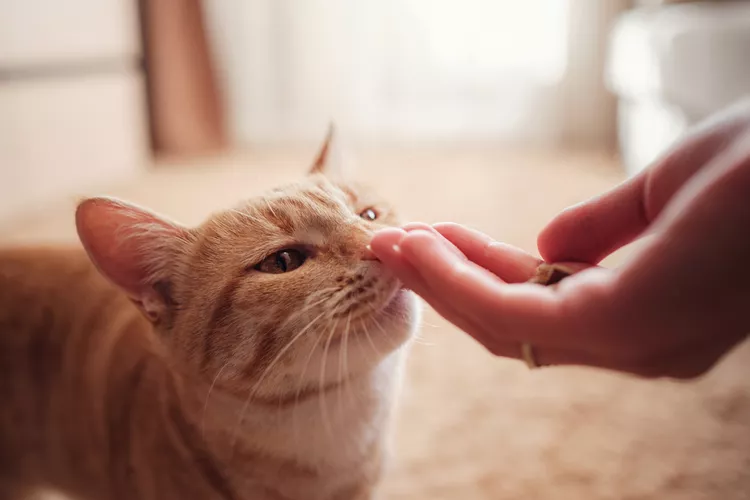
Cheese is a staple food item in most homes. In fact, it’s so commonplace, some pet owners may use it to hide pet medications in. Can cats eats cheese, though?
Cats are obligate carnivores, meaning they need animal protein in order to get all their required nutrients. That doesn't mean they only eat meat, though. In fact, one study showed that domestic cats, have a daily diet consisting of 52 percent protein, 36 percent fat, and only 12 percent coming from carbohydrates. So clearly they eat things besides meat. But does that mean they can and should eat cheese?
Cheese, like all dairy products, contains the milk sugar lactose. When kittens are first born, they have the proper enzymes to digest these sugars as they live off their mother’s milk for the first few months of their life. As they are weaned off of their mother’s milk, their production of lactulose, the enzyme needed to digest lactose begins to wane. In fact, by the time most kittens reach the age of one year, they stop producing it altogether. This means that most adult cats can’t actually digest lactose.
When an adult cat consumes anything with lactose, instead of being digested, the lactose is fermented in the intestines. This can cause both bloating and flatulence. Additionally, water is drawn into the intestines instead of out, causing diarrhea.
It’s important to note that the response of a cat’s gastrointestinal tract to dairy is not the same thing as to an actual food allergen. When a cat ingests a food they are allergic to, the physiological response is immune-mediated. When a cat eats dairy, they don’t get GI upset as a result of a food allergy but because they simply can’t digest it.
Cheese, like all dairy products, contains lactose, although not in as high of concentrations as actual milk. This is because of how cheese is made. Cheese making involves separating the curds, what is used to make cheese, from the whey. The whey actually contains most of the lactose, but some still exists in the curd.
Cow’s milk, whether whole, two percent, one percent, or skim has between nine and 14 grams of lactose. Pasteurized and processed American cheese, however, has just between 0.5 and four grams. So while cats can’t actually digest cheese, they can tolerate it in small amounts, or enough to be able to use cheese to hide medications.
Another thing to keep in mind is that cheese is a very calorie-dense food, and just a small amount can end up meeting your cat's calorie requirement for the entire day! Since pet obesity is a huge problem, don't forget to factor in calories of cheese when considering if you should feed it to your cat or not.
As eating a plant based diet becomes more popular in human culture, there are more and more cheese alternatives available on the market. You may be tempted to try non-dairy cheese for your cat as a way to get around the whole lactose thing, but this might actually be no better.
Some cheeses, whether dairy or non-dairy, may also contain herbs that may be more concerning than just lactose. Things like garlic and onion may be incorporated into some cheese varieties and both of these can be toxic to cats. In addition, non-dairy cheeses may contain more oils and fats than standard dairy cheese would. Fatty foods can lead to weight gain and may also cause GI upset, including pancreatitis.
If your cat manages to eat more than a few nibbles of cheese, don’t fret quite yet. Monitor your cat for GI signs, such as diarrhea and decreased appetite. If you fear they got into too much cheese, contact your local veterinarian or a pet poison hotline, such as the ASPCA Pet Poison Control.
Let them know what kind of cheese your cat got into and a rough estimate of how much you think they ate. They will be able to give better insight about what to watch out for, if veterinary medical attention is required, and what treatment should entail.
So, while some cats can tolerate cheese, they should only consume it in small amounts. Using it as a high value reward for administering medications or even training is usually fine, but it should not be a staple of their diet nor a treat given in high amounts.

212 Hairless Cat Names For Your Beautifully Bald Feline
Discover the perfect name for your hairless cat with our list of over 200 creative and unique names. From quirky to classic, find a fitting choice for your beautifully bald feline companion.
8 Things Your Cat Loves
Just like humans, cats can have a long list of things they like. Find out what cats love so you can keep your cat happy and healthy.
How to Tell If a Kitten is a Boy or a Girl
If you're wondering whether your new kitten is a boy or a girl, here are three ways to help determine the sex of your cat.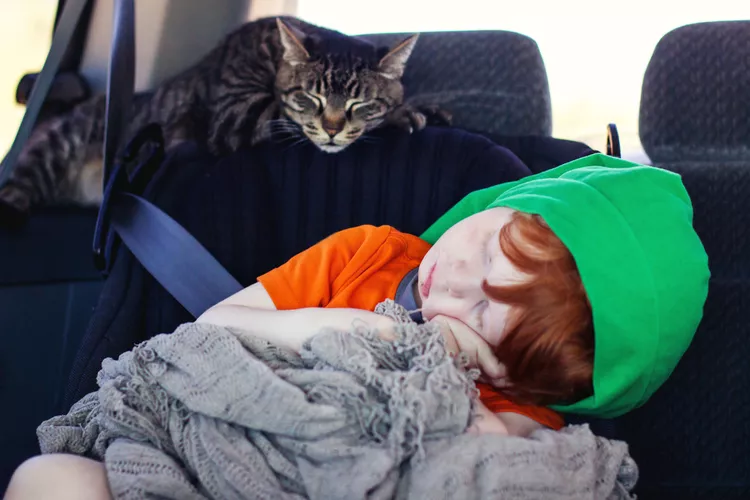
8 Tips to Help Cats Enjoy Car Travel
Cats are creatures of habit, and they hate to travel. Learn tips to prepare them for travel in the car, whether going to the vet or on vacation.
Common Causes of Mucus in Dog Poop
Seeing mucus in your dog's poop can be concerning to a dog owner. Here are common causes and treatment of mucus in a dog's stool.
Is Shrimp Bad For Dogs?
Shrimp can be a healthy, nutritional food for people but can dogs eat them, too? What are the main concerns with feeding shrimp to your dog?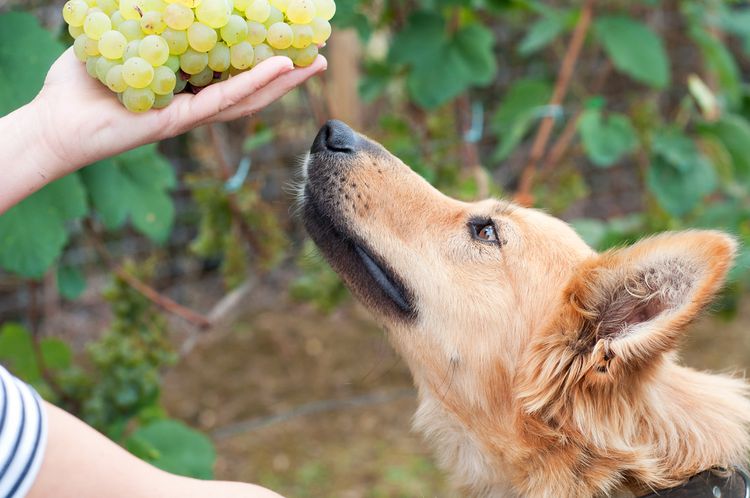
Can Dogs Eat Grapes?
Are grapes safe for dogs? Grapes and raisins can cause serious toxicity in dogs. Find out what to do if your dog eats grapes.
Maine Coon Cat: Breed Profile, Characteristics & Care
The Maine Coon cat is of the largest cat breeds in the world. These amiable, gentle cats make great companions. Learn about the Maine Coon cat breed's appearance, temperament, health, and care needs.
Selkirk Rex: Cat Breed Profile, Characteristics & Care
The Selkirk Rex is a charming cat with a tousled coat and a loving, laid-back personality. Learn about the Selkirk Rex breed.
How to Stop Your Cat From Chewing Electrical Cords
Cats are known to pounce and attack inanimate objects, like electrical cords. Learn how to prevent your cat from ambushing objects that may harm it.
What Do Cats Think About?
Have you ever wondered what cats think about? A number of studies have explored cat behavior and feline cognition, but there's still more to learn.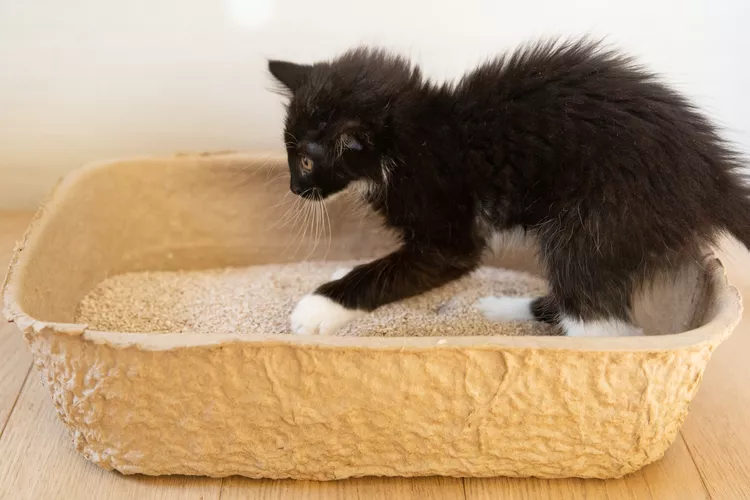
Training Your Kitten to Use the Litter Box
Bringing home a new kitten means they need to learn how to properly use a litter box. Discover how to successfully litter box train your kitten.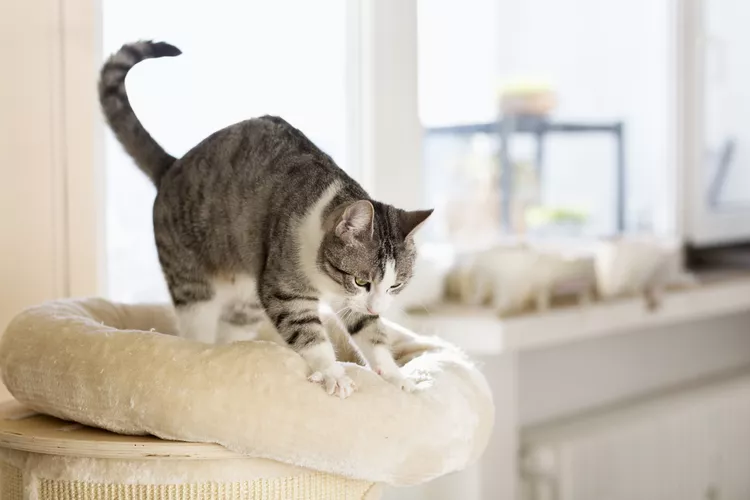
Why Do Cats Knead?
Kneading is a common behavior in cats of all ages. Learn why cats "make biscuits" and what it means for you, your cat, and all your blankets.
Dandie Dinmont Terrier: Dog Breed Characteristics & Care
Learn about the Dandie Dinmont Terrier, a silky dog breed with a signature puff of hair atop its head and a friendly, companionable personality.
Tibetan Mastiff: Dog Breed Characteristics & Care
Learn about the Tibetan mastiff, an ancient guardian dog breed. This breed is known for their massive stature, flowing mane, and protective personality.
4 Reasons Why Your Dog Licks Their Butt
Butt-licking in dogs can be a part of normal grooming, but excessive butt-licking is not normal. Read about the most common reasons for this behavior.
How to Teach Your Dog the "Leave It" Command
Training your dog the "leave it" command is a great way to instill self-control. Learn how to teach your dog to not pick things up from the ground.
How to Solve Your Dog's Fear of Car Rides
Is your dog scared of car rides? This fear of riding in cars is common. Learn why your dog is scared of car rides and how to help conquer this fear.
Can Dogs Get Depression? How to Help Your Sad Dog
Can dogs get depression? Learn about the signs of depression in dogs and find out how to help your sad dog.
How to Play Tug of War With Your Dog
Many dogs love to play tug of war, and it's a healthy game that provides great exercise. Learn the best way to safely play tug of war with your dog.